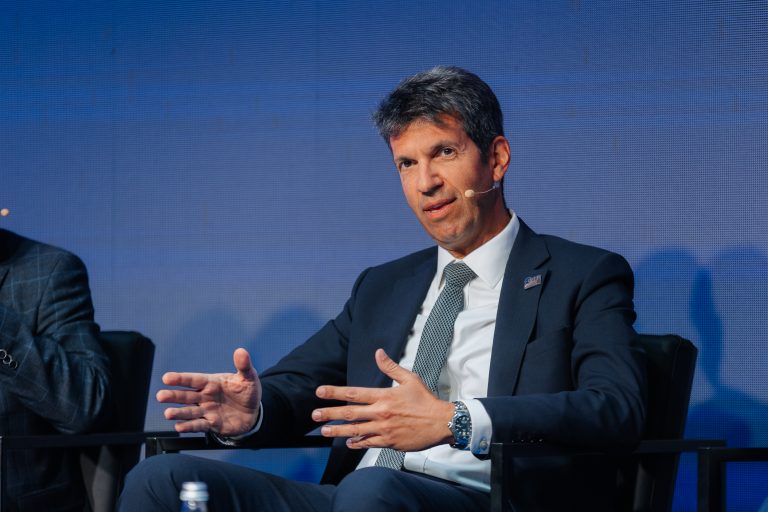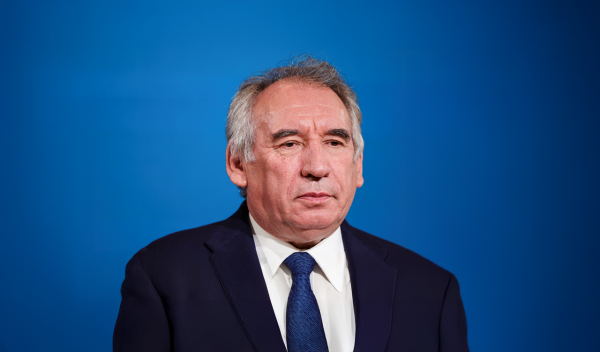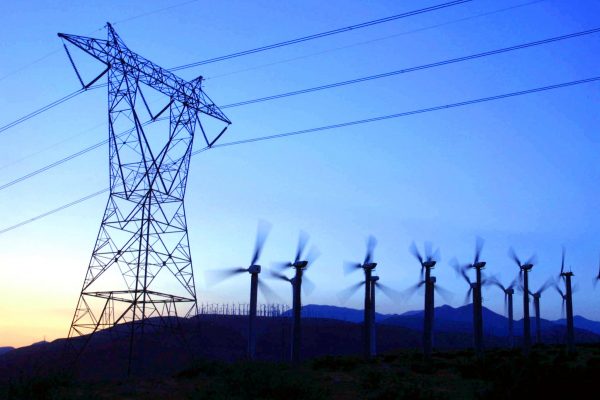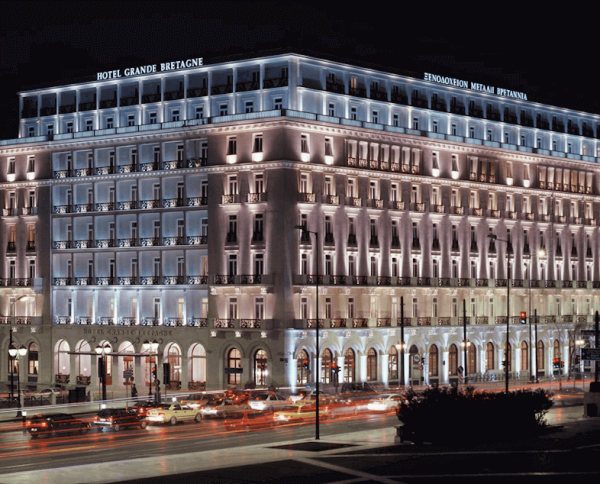
The assessment that Greece needs to strengthen the competitive advantage that it has begun to “build” in the field of optical satellite communications, taking action not only in terms of university research, but also in the creation of a business ecosystem, is expressed in an interview to the Athenian/Macedonian News Agency, by Polyzois Kokkonis, Future Programs Officer at the European Space Agency (ESA). “Optical satellite communications will develop strongly in the future. They become more important, because they offer very good possibilities for communication in Space” says Mr. Kokkonis and notes that Greece, in collaboration with ESA, was one of the first countries, through the ground station of the “Skylight” program at the Observatory of Helmos, made an optical link with a satellite.
The largest space hub in Southeast Europe is in Corinthia
Kokkonis, who clarifies that his position is personal and not the official view of ESA, in Greece an ecosystem needs to be created, which will focus on this factor. “We cannot support a sector only with startups. We must also be interested in the largest companies, perhaps foreign, that will want to set up a department in Greece. To do so, they need a ready-made ecosystem: to be able to find the right human talent, to find other companies active in the field of Space and a good level of university programs. Also, in addition to government research funding, there needs to be commercial funding as well. Greece has begun to appear internationally , but when we talk about technologies with so much potential for the future, we are talking about a highly competitive field. There are several countries that are interested in positioning themselves in the field of optical communications and that is where I think Greece needs to stimulate its ecosystem”, he underlines, on the occasion of the 6th international forum entitled “5G Techritory”, which recently gathered in Riga, Latvia, world-class personalities scope in the field of technology.
Technological expertise
But how suitable is the ground for the creation of a balanced ecosystem, when the Greek companies that have reached ESA’a TRL (Technology Readiness Level) level 9, which reflects the highest degree of technological specialization and readiness to undertake large projects, are few? “It is not necessary that the entire project be done within the same country. Greek companies must understand that there is not only the “make-buy” dichotomy, i.e. either I make something or I buy it, but also the cooperation model, through which they can find the right partners, in order to participate in larger projects. If I always try as a company to do everything in-house, it will be very difficult to get to TRL 9 quickly, whereas if I work with a partner, it can give me possibilities,” he says.
To the question of whether Greek companies (there are currently more than 45 purely export Greek companies active in the space sector, with an annual turnover of 210 million euros) are in a hurry to really develop such partnerships, Mr. Kokkonis answers that to some extent they do, but it’s not the mainstream. Many technology companies – and this does not only concern Greece – are afraid that if they share their ideas with larger companies, they will lose them, he says. “But until an idea can be transformed into a competitive product for the world market, it has a very long way to go. And big companies have the ability to help with just that. So having bigger companies in Greece, for example, as subsidiaries of foreign companies, and supporting the ecosystem around them, I think is the healthiest,” he estimates.
European satellite array and communication & navigation on the Moon
The Greek physicist, based in England, focuses on ESA’s programs for the future. So what does ESA have in store for tomorrow? His answer includes a European array of satellites, “in some ways equivalent” to SpaceX and Elon Musk’s Starlink, a pioneering communications system on the Moon, as well as disaster relief programs. As he says, among other things, ESA contributes to the IRIS² program (so named after the eponymous deity of ancient Greek mythology, who was a messenger of the Olympian gods).
“The European Union wants to build a satellite array, similar to, say, Starlink, although the word “similar” is not entirely accurate. An important trend today is low-orbit satellites, which have many advantages for communications. Europe wants and must be autonomous, i.e. to have the possibility for independent communications, navigation, observations from satellites playing a leading role in this area. But autonomy is not the only goal of IRIS². By doing something like this, you enable European industry to develop the skills, technology and know-how in such areas. Because you cannot expect the industry to develop such abilities and skills by itself, if there are no projects that require them. So, we need such large-scale programs, which will give European industry the opportunity to develop in technological cutting-edge areas” he notes, while when asked when this array is expected to be created, he clarifies that he would not like to expand on details, since the project is managed by the EU.
In addition, another program is “running” in the EU, for which there is collaboration with NASA. The program is about trying to provide communication and navigation on the Moon, so that missions to the moon do not have to set up the required infrastructure from scratch each time. “And this will not only benefit Europe, the idea is to offer it to the rest of the missions as well. That’s why there is cooperation with NASA. In addition, the EU is trying to support more the commercialization of space technology, i.e. to support European companies, which are active with products or services related to Space” he says and cites the case of earth observation data, a sector with countless possibilities and applications, which has a great contribution in the field of dealing with natural disasters.
Europe is strong in satellites, but still lags behind in launches
According to Mr. Kokkonis, Europe is very competitive in the manufacturing of commercial satellites and related technology, through companies such as Airbus, Thales and OHB, while on the contrary the American Boeing and Lockheed focus on government and military orders. “The point where one can say that Europe is currently facing a challenge is in low-orbit satellites. There, a much larger number of satellites, faster production and renewal are needed. Some steps have been taken – for example, OneWeb is European – but Europe does not yet have the necessary scale in production. In addition, Europe also has a problem – faced by other regions of the world – in the matter of launching into Space,” he says, recalling that ESA has the platform for its launches in Kourou in French Guiana.
He adds that when we talk about large launches, this means high altitude, and a large payload to be sent into space. The most reliable Western system at the moment, he notes, is that of the American SpaceX with its (reusable) Falcon cargo rockets. “In this part Europe has the Ariane rockets, with the new generation of which, Ariane 6, it has to cover the distance. At the moment, of course, Ariane has delays and some technical problems. What Europe always struggles with is the scale part. In Europe, many companies and many countries need to work together to achieve something, while the American equivalent is that usually a company operates more autonomously, if we take for example SpaceX or the approach that Amazon now has with the Kuiper project” he notes .
To the question of whether there are European collaborations with NASA and American companies, especially at a time when the West-East technological war is ongoing, the Greek scientist answered that there are synergies in the field of astronomy and cosmology, but also in space exploration. Important examples of ESA-NASA cooperation are: the James Webb Space Telescope concerning cosmology and the exploration of the Moon with the Artemis mission. “Also, countries such as Australia and India are appearing, which are also interested in collaborations, to which ESA is open,” he says.
Asked if the war in Ukraine has in any way affected ESA’s space and satellite programs, Mr. Kokkonis says that there is clearly an impact, as some collaborations with the Russian space agency, Roscosmos, are not progressing and various changes have had to be made in planning, but – as he clarifies – he is not competent to speak about. “In general, cooperation with both China and Russia is more difficult these days,” he points out.
Today private individuals like Elon Musk and Jeff Bezos are launching satellite arrays into space. How does he see this trend developing and how is it expected to affect society and the economy? “Historically we’ve had telecommunications satellites in geostationary orbit. You could practically cover almost the entire Earth with three satellites. However, due to their great distance from the Earth, these satellites cannot offer low latency (i.e. they have a long time delay) and broadband communications, while because they are always around the Equator, they lag behind in coverage closer to the polar regions. By developing systems in orbits closer to Earth with low-orbit satellites we have the features we need, but the systems are becoming more complex. Such systems are Musk’s Starlink and Bezos’ Kuiper. This idea is not new. It dates back to the late 90s. It was simply not possible then to launch as many satellites as such a system would require. This gradually improved – thanks also to the big leap of SpaceX, which because it has reusable parts in its rockets manages to make new launches very quickly – so the way was opened” he notes.
Of course, launching arrays of satellites means that there is now necessarily a much larger number of objects in space, and junk in orbit. “So we’re dealing with how we manage these objects. Practices that were in place when we had a small number of objects in Space cannot continue to be in place. And this also concerns how we manage these objects (satellites) before they become useless and waste. That is, there must be an agreed policy, that when I send something into Space and it ceases to be useful, I have already decided in advance what I will do” he points out.
At a time when the scale of what is done in Space is increasing and the complexity is correspondingly increasing, space services find valuable help in Artificial Intelligence (AI): “You need AI to be able to manage networks – both in space and on the ground – with the size and complexity we need right now. The same goes for the various missions. Therefore, there is a lot of interest in such programs. ESA is open to proposals of this type and there are specific calls for programs, regarding the introduction of AI in our various projects” he concludesd.
Latest News

Rhodes Airport Tops Fraport Greece’s Regional Airports in 2024 Performance
According to Fraport's data, more than 35 million passengers (specifically 35.2 million) were handled by Fraport-managed airports during the 11 months.

European Central Bank Cuts Interest Rates by 25 Basis Points
It is the fourth cut of interest rates by Europe’s central bank, a move expected by the markets and financial analysts leading to the rate settling at 3%.

Airbnb: New Measures Add €600 in Extra Costs for Property Owners
Property managers face an immediate administrative fine of 5,000 euros if access to the inspected property is denied or any of the specified requirements are not met.

Economist: Greece Included in the Best Performing Economies in 2024
Meanwhile, Northern European countries disappoint, with sluggish performances from the United Kingdom and Germany.

EasyJet Expands Its Routes from Athens
The airline’s two new routes will be to London Luton and Alicante and they will commence in summer 2025.

Capital Link Forum Highlights Greece’s Economic Resurgence; Honors BoG Gov Stournaras
Capital Link Hellenic Leadership Award recipient, Bank of Greece Gov. Yannis Stournaras, an ex-FinMin, was lauded for his pivotal role during Greece’s economic recovery

Tourist Spending in Greece Up by 14%, Visa Card Analysis Shows
Greece’s capital Athens emerged as the most popular destination, recording a 17% increase in transactions with Visa cards, surpassing even the cosmopolitan island of Mykonos.

Inflation in Greece Unchanged at 2.4% in Nov. 2024
The general consumer price index (CPI) posted a 0.4% decrease in November compared to the previous month

2024 Christmas Holidays: Extended Shop Hours Schedule
The 2024 Christmas Holidays extended shop hours schedule commences on Thursday, December 12 and runs until the end of the year.

ELSTAT: Seasonally Adjusted Unemployment Down in October
The number of employed individuals reached 4,284,694, an increase of 67,723 compared to October 2023 (+1.6%) and 22,002 compared to September 2024 (+0.5%).














![Fraport: Πάνω από 35 εκατ. επιβάτες στα αεροδρόμια το 11μηνο – Πτώση στη Μύκονο [πίνακας]](https://www.ot.gr/wp-content/uploads/2022/06/fraport-90x90.jpg)



























 Αριθμός Πιστοποίησης Μ.Η.Τ.232433
Αριθμός Πιστοποίησης Μ.Η.Τ.232433